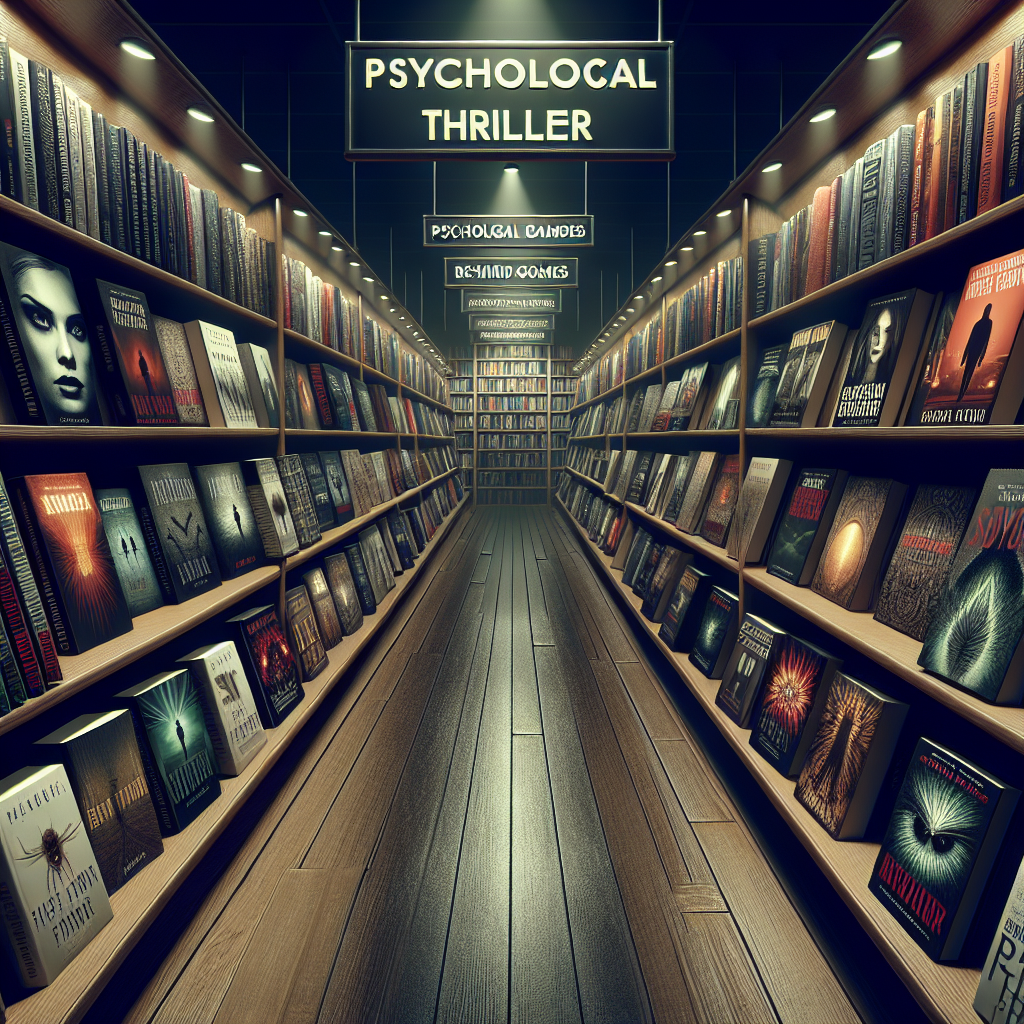As an Amazon Associate I earn from qualifying purchases.
Exploring the Labyrinth of the Mind: The Most Popular Psychological Thrillers

The realm of psychological thrillers is a dark and twisted space, where the exploration of the human psyche takes precedence, leading viewers and readers on a journey through the intricate mazes of the mind. This genre, blending elements of mystery, drama, and often horror, delves deep into the complexities of human emotions, motivations, and the often blurry line between perception and reality. The most popular psychological thrillers captivate audiences with their intricate plots, complex characters, and the unsettling feeling that what you see might not always be the truth.
Defining the Psychological Thriller
Before diving into the examples that have defined the genre, it's crucial to understand what sets psychological thrillers apart from other forms of thriller or horror media. At its core, a psychological thriller focuses on the state of mind of its characters, often exploring themes of identity, reality, perception, and the human condition. Unlike traditional thrillers, which might rely more heavily on action or physical danger, psychological thrillers are more concerned with the internal conflicts of their characters, creating tension and suspense from the mental and emotional struggles within.
The Pillars of Psychological Thrillers
Several key elements are quintessential to the psychological thriller genre:
- Unreliable Narrators: These stories often feature protagonists whose credibility is compromised, creating a sense of uncertainty and unpredictability.
- Twisted Plots: Complex and often nonlinear storylines that challenge the audience's perception and keep them guessing until the very end.
- Dark and Moody Atmospheres: A hallmark of the genre, these settings contribute to the overall sense of unease and tension.
- Exploration of Mental Illness: Many psychological thrillers delve into the realms of mental illness, blurring the lines between reality and delusion.
- Moral Ambiguity: Characters in these stories often exist in a grey area of morality, making it difficult for the audience to distinguish between heroes and villains.
Iconic Examples of Psychological Thrillers
Throughout the years, several films and books have come to define the psychological thriller genre, each contributing in its own unique way to the exploration of the human psyche.
Films
- Psycho (1960): Directed by Alfred Hitchcock, this classic film set the standard for psychological thrillers, introducing audiences to the complex relationship between Norman Bates and his mother.
- Se7en (1995): A dark and gritty tale of two detectives on the trail of a serial killer whose crimes are based on the seven deadly sins, exploring themes of sin, guilt, and redemption.
- Black Swan (2010): This film delves into the psyche of a ballet dancer consumed by her dual role in “Swan Lake,” exploring themes of obsession, perfection, and identity.
- Gone Girl (2014): Based on the novel by Gillian Flynn, this story of a woman's disappearance and the subsequent media frenzy and police investigation explores themes of media manipulation, the facade of the perfect marriage, and the dark side of human nature.
Books
- “Shutter Island” by Dennis Lehane (2003): A U.S. Marshal investigates the disappearance of a patient from a hospital for the criminally insane but finds himself questioning his own sanity.
- “Gone Girl” by Gillian Flynn (2012): The novel behind the successful film, this book offers a deeper dive into the complexities of its characters and the unsettling dynamics of their marriage.
- “The Girl on the Train” by Paula Hawkins (2015): Through the eyes of an unreliable narrator, this story unravels a complex web of deceit, love, and memory.
- “Big Little Lies” by Liane Moriarty (2014): While not a psychological thriller in the traditional sense, this novel explores the psychological dynamics of a group of women entangled in a murder investigation.
The Impact of Psychological Thrillers
The popularity of psychological thrillers speaks to their profound impact on audiences and readers. These stories do more than entertain; they challenge us to question our perceptions of reality and morality. They reflect our deepest fears and anxieties, often leaving us with more questions than answers. In doing so, psychological thrillers hold up a mirror to society, exploring the darkest corners of the human mind and the secrets we keep hidden.
Why We Are Drawn to Psychological Thrillers
There's a certain allure to the psychological thriller genre that draws people in. Perhaps it's the thrill of the unknown, the excitement of trying to solve the puzzle before the protagonist does, or the fascination with the darker aspects of human nature. Psychological thrillers satisfy our curiosity about the mind and its workings, offering a safe space to explore our fears and anxieties. They remind us of the complexity of human emotions and the unpredictability of life itself.
Conclusion: The Enduring Appeal of Psychological Thrillers
The most popular psychological thrillers have left an indelible mark on the landscape of film and literature, captivating audiences with their intricate plots, complex characters, and profound explorations of the human psyche. These stories challenge us to look beyond the surface, to question our perceptions and assumptions about reality, identity, and morality. As we continue to navigate the complexities of the human mind, the psychological thriller genre stands as a testament to our endless fascination with what lies beneath the facade of normalcy. In the end, these stories resonate because they reflect our deepest fears, desires, and the unending quest to understand the enigma of the human condition.
Amazon and the Amazon logo are trademarks of Amazon.com, Inc, or its affiliates.






















































